UAW Wants Auto Industry to Stop Using Slave Labor

The United Auto Workers (UAW) are pressuring automakers to stop leaning on parts suppliers that use slave labor, specifically from China's Xinjiang region. Over the last several years, the area has continued to be a focal point for human rights groups due to the heinous manner in which the Chinese government has treated the Uyghur ethnic minority living there. This has occasionally encompassed criticisms for manufacturers that benefit from their labor. But a recent study has alleged that there’s not an automaker in existence with a supply chain that doesn’t utilize slaves to some degree, encouraging the UAW to strike while people seem to be paying attention.
“Forced labor and other human rights abuses are unacceptable in the modern global economy,” said Ray Curry, President of the UAW. “The time is now for the auto industry to establish high-road supply chain models outside the Uyghur Region that protect labor and human rights and the environment. This includes significant re-investments in good union jobs in the U.S.”
The report in question, Driving Force: Automotive Supply Chains and Forced Labor in the Uyghur Region, was released on Tuesday by Sheffield Hallam University’s Helena Kennedy Centre for International Justice and documents the usage of slave labor in the production of steel, aluminum, copper, glass, electronic components, EV and lead-acid batteries, textiles, and just about everything else that might go into the construction of a modern automobile as it relates to Xinjiang.
The paper asserts that forced labor is rampant within the region and that it would be impossible to guarantee that the goods coming out of it aren’t the result of slavery without massive impartial oversight being present. It also directly cites specific instances of slavery and notes that it’s frequently apparent in multiple steps (e.g. component manufacturing, mining, refining, pre-fabrication, and final assembly) of certain product chains.
As a byproduct, having automakers rejigger their supply lines could mean more domestic jobs for the UAW.
“As the automotive industry transitions towards electric vehicles, the new EV tax credit program and Inflation Reduction Act (IRA) creates economic opportunities for the industry to bring manufacturing work back into the United States and create good union jobs,” Curry said.
The UAW wants the United States to lean into the Uyghur Forced Labor Prevention Act (UFLPA) that came into effect over the summer – something that’s supposed to prohibit the importation of any items that may have benefited (wholly or just in part) from forced Uyghur labor. But that could be easier said than done since we already knew some of the world’s largest automakers benefited from slave labor years before to the above study came out.
While we like to think that slavery is a thing of the past, the truth of the matter is that there are probably more slaves living on Earth today than in any other period in human history. Since 2017, an estimated 2 million Uyghurs and other Muslim minorities have been held in large detainment camps in the Uyghur Region through government programs sanctioned by the People’s Republic of China. The Chinese government often references these sites as "vocational centers" (pictured below). But investigations have shown that residents are effectively treated as prisoners with widespread reports of forced labor, family separation, cultural erasure, forced sterilization, sexual violence, and generalized abuse.
China is now building massive quarantine camps it has alleged would be necessary for the pandemic. It’s assumed that these sites will operate in a similar fashion to the Uyghur concentration camps and house political prisoners. But China is not the only country that’s guilty of unsavory labor practices and we’ve previously covered the questionable ways in which the raw materials are being mined for car batteries in Africa.
“The U.S. government must devote the necessary resources to allow Customs and Border Protection (CBP) to effectively identify and ban the importation of products made with forced labor,” said Curry, “We also urge all global auto brands and suppliers to work together to immediately take meaningful, transparent steps to ensure its supply chains are not tainted with Uyghur forced labor. The UAW will work with allies and other responsibly minded stakeholders in the U.S. and around the world to help end these labor and human rights atrocities.”
Whether or not you're fond of the UAW as an organization, the related report is a comprehensive look into the heinous labor abuses taking place within the automotive sector and is well worth a read.
[Images: Daniel J. Macy; Azamat Imanaliev/Shutterstock]
Become a TTAC insider. Get the latest news, features, TTAC takes, and everything else that gets to the truth about cars first by subscribing to our newsletter.

A staunch consumer advocate tracking industry trends and regulation. Before joining TTAC, Matt spent a decade working for marketing and research firms based in NYC. Clients included several of the world’s largest automakers, global tire brands, and aftermarket part suppliers. Dissatisfied with the corporate world and resentful of having to wear suits everyday, he pivoted to writing about cars. Since then, that man has become an ardent supporter of the right-to-repair movement, been interviewed on the auto industry by national radio broadcasts, driven more rental cars than anyone ever should, participated in amateur rallying events, and received the requisite minimum training as sanctioned by the SCCA. Handy with a wrench, Matt grew up surrounded by Detroit auto workers and managed to get a pizza delivery job before he was legally eligible. He later found himself driving box trucks through Manhattan, guaranteeing future sympathy for actual truckers. He continues to conduct research pertaining to the automotive sector as an independent contractor and has since moved back to his native Michigan, closer to where the cars are born. A contrarian, Matt claims to prefer understeer — stating that front and all-wheel drive vehicles cater best to his driving style.
More by Matt Posky
Latest Car Reviews
Read moreLatest Product Reviews
Read moreRecent Comments
- Spectator Wild to me the US sent like $100B overseas for other peoples wars while we clammer over .1% of that money being used to promote EVs in our country.
- Spectator got a pic of that 27 inch screen? That sounds massive!
- MaintenanceCosts "And with ANY car, always budget for maintenance."The question is whether you have to budget a thousand bucks (or euro) a year, or a quarter of your income.
- FreedMike The NASCAR race was a dandy. That finish…
- EBFlex It’s ironic that the typical low IQ big government simps are all over this yet we’re completely silent when oil companies took massive losses during Covid. Funny how that’s fine but profits aren’t. These people have no idea how business works.




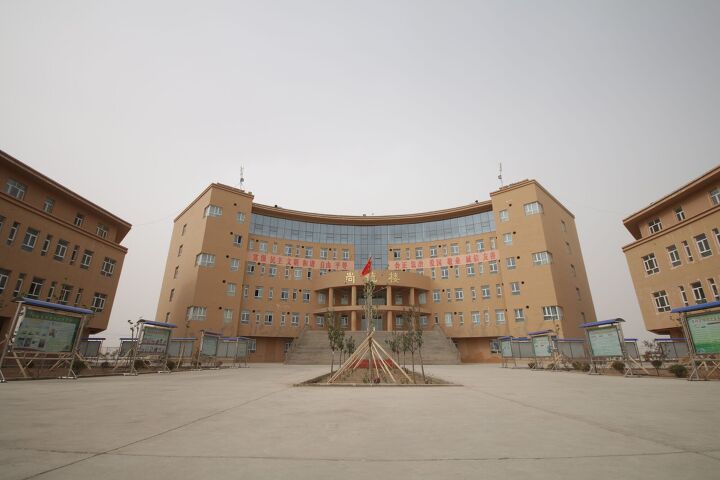















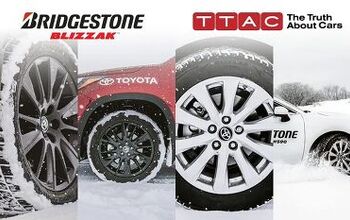
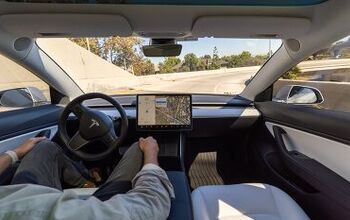






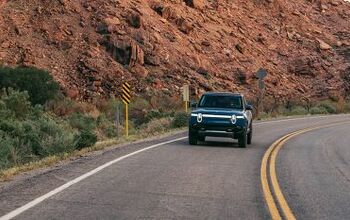


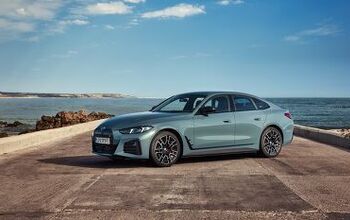



Comments
Join the conversation
I wonder who really cares about this. "Slave labor" is a useful term for the agendas of both right and left.
"UAW Wants Auto Industry to Stop Using Slave Labor"... but what will the UAW actually do if nothing changes?
With unrelenting downward pressure on costs in every industry - coupled with labor shortages - expect to see more of this.
Perhaps it's my fault when I choose the $259 cell phone over the $299 model, or the cheaper parts at RockAuto, or the lower-priced jacket at the store.
Do I care about an ethical supply chain? Not really, I just want the product to work - and that's how most consumers are. We'd rather not know.
Perhaps the 1990s notion of conflict-free, blood-free, ethically-sourced diamonds will find its way into the auto industry. That would be a good thing.
@Lou_BC--Diamonds are not really rare DeBeers dominates the diamond market and created the market with advertising starting in the 1930s thru the 40s. Before that time diamonds were for the most part considered for the wealthy and diamond wedding rings were not that common. Go back 100 years and most women wore wedding bands made of gold, silver, or other metals. DeBeers dominating the diamond market also controls the supply of diamonds keeping the prices higher by restricting supply. Sound familiar? Oil companies have learned to restrict supply of oil as well.
https://blog.hubspot.com/marketing/diamond-de-beers-marketing-campaign